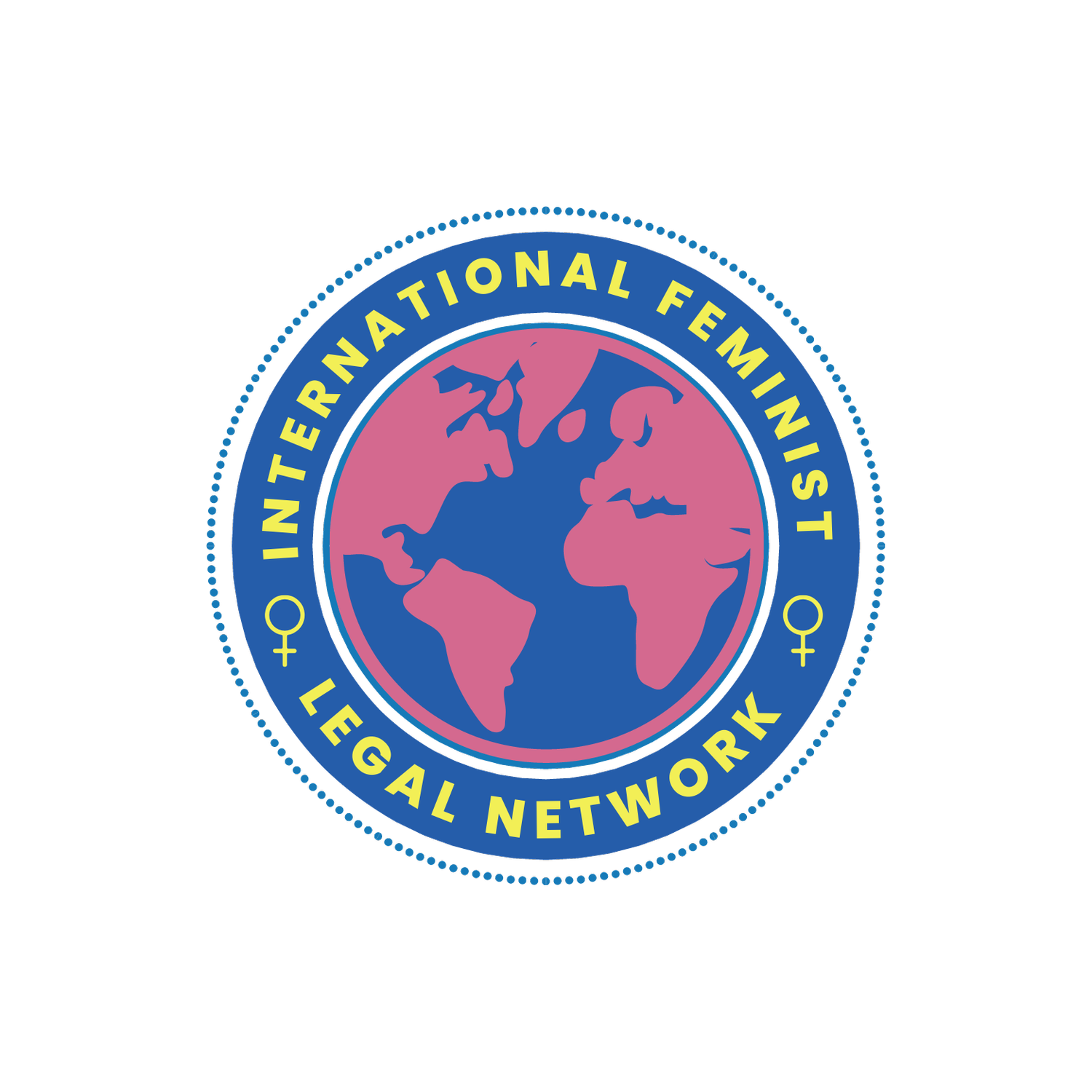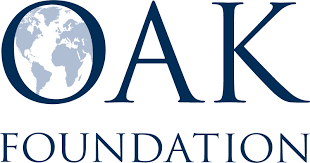About the IFLN
We are an international feminist legal network of lawyers and legally focussed NGOs (doing strategic legal work and other policy impact work) on male psychological violence against women.
The IFLN was formed by Centre for Women’s Justice and independent advisor, Purna Sen, with funding from The Oak Foundation.
Objectives:
The network connects with individual lawyers, NGOs that work on the law and how it operates, and others making creative use of the law and campaigning for legislative reform to
improve our mutual learning
create an evidence base of legislative, policy, practical and litigation initiatives that combat psychological violence
build state accountability on psychological violence towards women
explore defences and other solutions for women criminalised as a consequence of psychological violence
produce a reliable, authoritative evidence base in the form of briefings, resources and event recordings, that will be of longer-term use.
The network allows experts to share learning with each other and with decision makers in their own jurisdictions, contributing towards improvements in law and practice to tackle psychological violence to women and girls, and its harmful impacts.
The working language of the network is English.
Principles
1. A shared commitment to:
challenging and containing male violence against women and girls targeting the roots causes of intersectional gender inequalities
making visible state violence and fostering state accountability for the safety of women and children
holding abusers, private financial and business entities and the state accountable; thus working to change systemic inequalities anti-racist principles and practice
2. Strategic working
Learning and sharing strategies on strategic litigation, strategies to improve access to justice for victims/survivors, collaborations, embedding change and other interventions that bring feminist analyses into legal practice incorporating feminist perspectives that re-conceptualising 'justice’.
3. Mutual Learning and Respect
IFLN seeks to advance mutual learning on the context, inhibitors and enablers of litigation in line with principle 1 Recognising diversity of positions and analysis, IFLN will make it possible to have spaces of complexity that draw on expert and evidence-based discourse, seeking to avoid the shutting down of discussion and debate as membership and participation is extended to include those who may have different perspectives as to how to best tackle complex issues.
Advisory Group
-
Purna joined the Child and Woman Abuse Studies Unit (CWASU) in November 2020 as a Visiting Professor, where her work focuses on internationalising and facilitating joined-up learning on work to end violence against women.
Purna has worked extensively in the UK and beyond on inequalities and the pursuit of human rights, including as Deputy Director of the Institute of Public Affairs at the London School of Economics and Political Science (LSE) where she also taught gender and development, as Head of Human Rights for the Commonwealth Secretariat and as Director for the Asia-Pacific Programme at Amnesty International. Purna has consulted with organisations including Article 19 and the British Council and has been on the management and advisory groups of non-governmental organisations including the Refugee Women's Resource Project and Southall Black Sisters. Purna was previously a board member of the Kaleidoscope Trust (an LGBT rights charity), RISE (a domestic abuse charity) and the Commonwealth Human Rights Initiative.
Purna most recently (2015-2020) worked at UN Women initially as Director of the Policy Division and latterly as the Executive Co-ordinator and Spokesperson on addressing sexual harassment and other forms of discrimination.
-
Harriet is a lawyer with 30 years’ experience focussing on holding the state to account generally, particularly the police and prosecution services.
Harriet’s practice started following her involvement in campaigning around women who kill their abusers and how they are treated by the criminal justice system and challenging criminal convictions. She came to the law from a feminist campaigning background so always sought to use the law to enhance feminism in particular around violence against women and girls.
-
Gema is a lawyer and researcher in the areas of human rights, women’s rights and the women, peace and security framework.
She has engaged in litigation on cases around violence against women, discrimination, human rights, trafficking and sexual reproductive rights.
Gema is one of three managing attorneys at Women’s Link which is a feminist legal organisation using the law to bring justice to women, girl, and gender non-conforming people.
-
Taina is based in New York City and was born in the USA. She is of Haitian decent first generation and came into the work in the early 90’s.
She is a founding board member of Equality Now which was formed in 1992 when the concept of women’s rights as human rights didn’t even exist.
Taina has been involved for the last 20 years in with Equality Now in various capacities including being an Executive Director for 10 years and then after her departure from there the Board of the Coalition Against Trafficking in Women asked her to become their Executive Director.
She defined her expertise as fighting harmful cultural practices.
One of her first campaigns with Equality Now was campaigning to recognise female genital mutilation (FGM) as a crime which led to the criminalisation of FGM in the US.
Taina and CATW are currently focusing on adding to their work on legal advocacy and are raising awareness about the trafficking of women and girls, the sexual exploitation, the prostitution, all of the ways in which the state is either allowing or sanctioning the sale of women and girls on the marketplace, whether it is through the sex trade including prostitution and pornography, or commercial surrogacy.
-
Bronwyn is a lawyer from the Women’s Legal Centre (WLC) which is an African feminist law centre based in Cape Town which work nationally and has also engaged internationally.
Her work is very focused on marginalised, vulnerable women in South Africa, particularly black African women who have very little access to justice.
Bronwyn started as a young feminist in the rape crisis movement and studied law and then moved into prosecution. She was a prosecutor for 15 years working with the National Prosecution Authority. This gave her insight into the workings of the criminal justice system.
Bronwyn’s work is focused on state accountability and impunity, holding the state to account.
-
Christina has been a litigator in the Philippines for the last 20 years and has worked with non-government organisations focusing on violence against women, violence against children as well as human trafficking. As a litigator, she appears as a private prosecutor as it is allowed in the jurisdiction.
More recently Christina has been focusing on torture at a regional level and is the Human Rights Officer for the worldwide organisation against torture (OMCT) in Asia.
-
Jessica Gavron is a UK barrister and Co-director of the European Human Rights Advocacy Centre, based at Middlesex University, London. She has more than 20yrs experience litigating and teaching international human rights law and criminal law. She has litigated cases on behalf of hundreds of victims of grave human rights violations against Russia, Georgia, Azerbaijan, Ukraine and Armenia, including the right to life, torture, conflict and post conflict, terrorism, repression of civil society and discrimination before the European Court of Human Rights and UN mechanisms. She has a particular focus on gender-based violence, including challenging barriers to justice and identifying discriminatory practices. She has litigated cases relating to domestic and sexual violence, femicide, honour crime and trafficking before the ECtHR and CEDAW Committee. Judgments include the first femicide case against Georgia (Tkhelidze v Georgia, ECtHR No. 33056/17); femicide perpetrated by a police officer (A and B v Georgia, ECtHR No 73975/16); and the first substantive honour crime decision by an international tribunal (Jeiranova v Georgia CEDAW Communication No. 140/2019).
Jess has devised and delivered trainings on international human rights standards and gender-based violence for legal professionals across Europe and authored legal resources, blogs and articles. She has taught International Human Rights Law to undergraduates, postgraduates and professionals at the London School of Economics and advised on issues of international human rights and humanitarian law in cases arising from the occupation of the West Bank and Operation Cast Lead, Gaza (2009).









